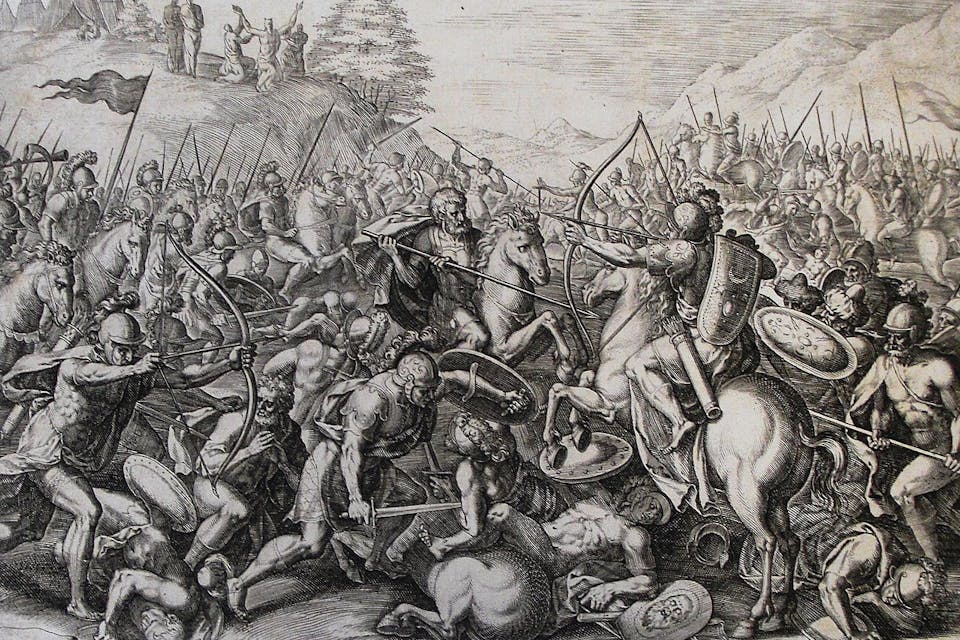
January 29, 2021
Reading Exodus with Leon Kass: The Meaning of Amalek
Why is the Lord so adamant about obliterating Amalek, and why does He make His intentions known?
Once a week for the next few months, Mosaic will be publishing brief excerpts of Leon R. Kass’s new book on Exodus, Founding God’s Nation. Curious about one of the foundational texts of the Jewish tradition? Read along with us. To see earlier excerpts, go here.
This week, Jewish communities all over the world begin their study of Exodus 13:17–17:16, a portion of the text known by its first significant Hebrew word, “B’shalaḥ.” Having fled Egypt, the Israelites arrive at the Sea of Reeds, which God parts and from which they emerge reborn as a free people. They sing and dance in exultant celebration. Once in the wilderness, the Israelites are tested by the need for sustenance, for internal order and peace, and for defense against external attack, with each need revealing a new face of God’s providence and of the human virtues necessary for national life. In this week’s selection, we join Kass as he interprets the final episode of B’shalaḥ, in which the hostile Amalekites launch an unprovoked attack on the Israelite rear, and then Moses and Joshua rally the people to victory.
Only after the battle is over and the enemy is repulsed does the Lord explicitly enter the story. Appearing to endorse the enterprise, He (privately) offers Moses instructions about how it is to be regarded hereafter: